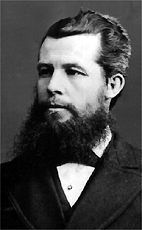A Quote by Matthew Specktor
I don't want to say that having power is overrated, but powerlessness can give rise to a different kind of authority, and that's the kind of authority that writes books.
Related Quotes
I'm happy to respect authority when it's genuine authority, based on moral or intellectual or even technical superiority. I'm eager to follow a hero if we can find one. But I tend to resist or evade any kind of authority based merely on the power to coerce. Government, for example. The Army tried to train us to salute the uniform, not the man. Failed. I will salute the man, maybe, if I think he's worthy of it, but I don't salute uniforms anymore.
There is a great difference, then, between "power" and "authority." Power refers to one's ability to coerce others (through physical, economic, or other means) to do one's bidding. One can possess the means of power: physical strength, armaments, and money. But authority must be performed. Authority refers to one's ability to gain the trust and willing obedience of others. While power rests on intimidation, authority survives through inspiration.
Criticism does demand a certain kind of authority, but what about the authority of not really being sure what you think? What about the authority, the authenticity that comes from bringing all your intellectual, emotional and spiritual equipment to a piece of art or entertainment whilst still being uncertain and confused?
In a culture of technique, we often confuse authority with power, but the two are not the same. Power works from the outside in, but authority works from the inside out. . . . I am painfully aware of the times in my own teaching when I lose touch with my inner teacher and therefore with my own authority. In those times I try to gain power by barricading myself behind the podium and my status while wielding the threat of grades. . . . Authority comes as I reclaim my identity and integrity, remembering my selfhood and my sense of vocation.
The notion of the enduring authority focuses on the fact that some people think that notions like authority of Scripture's is passé, while others say that the present configuration of the doctrine of inerrancy is a late addition. And to both we want to say, No we're talking about the enduring authority of Scripture, grounded first and foremost in its relevatory status, something given by God and utterly reliable.
This is the essence of Kingdom Authority. Fathers can have no authority in the home until they have surrendered to the headship of Jesus. Mothers cannot pray with authority for their children when they have no submissive spirit to their own husbands. Pastors cannot lead, teach, or preach with anointing and supernatural power without being fully broken and surrendered to the lordship of Christ, the authority of the Word, and the commands of the Spirit.







































